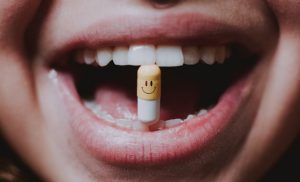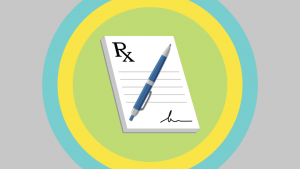
Source: Unsplash.com
3,4-Methylenedioxymethamphetamine, more commonly known as MDMA, ecstasy, E, M, or Molly, is an infamous psychoactive drug often associated with nightclub and rave scenes. Hours of partying are fueled by intense feelings of pleasure, emotional warmth, and an abundance of energy owed to this little pill with so many names. The negative stigma attached to recreational drug use has given MDMA a bad rep, but a team of researchers in California are repurposing this synthetic drug to treat anxiety in people suffering from life-threatening illnesses (LTI).
In one of the first clinical trials of its kind, Dr. Philip Wolfson and his team explored how using MDMA during psychotherapy sessions impacted anxiety levels. The team found that the study participants who took MDMA had improved mindfulness and a more positive outlook towards their traumatic experiences. Depression, sleep quality, and anxiety levels also improved, but these improvements couldn’t conclusively be attributed to the MDMA. The findings of this small pilot study suggest MDMA could still have potential to reduce anxiety associated with LTI and may also have positive long-term effects.
MDMA is only one of many drugs currently being researched for therapeutic applications. LSD, famously tested for mind control by the CIA in the 1950’s and 60’s as a part of the MK-ULTRA Program, shows potential for treating alcoholism and could also treat PTSD. Another psychedelic drug called psilocybin, the active compound in magic mushrooms, is being investigated to treat a myriad of mental health disorders: from depression, to anxiety, to OCD, to certain substance use disorders. A horse tranquillizer called ketamine, which doubles as a club drug, is being researched to treat depression and (so far) shows potential.
Although current studies show promising results, could the stigma surrounding hard drugs like MDMA and ketamine deter patients from taking them once/if they become approved for clinical use? Or would the existing stigma dwindle once they get a doctor’s stamp of approval? Or maybe it’s simply why the drugs are used that give recreational use a bad name. Whatever your beliefs and convictions, scientifically, hard drugs may have a place in medicine in the (potentially near) future.

Source: GoodRx.com
By Maya Bird

One response to “From Recreational to Pharmaceutical – Promising Party Drugs in Research”